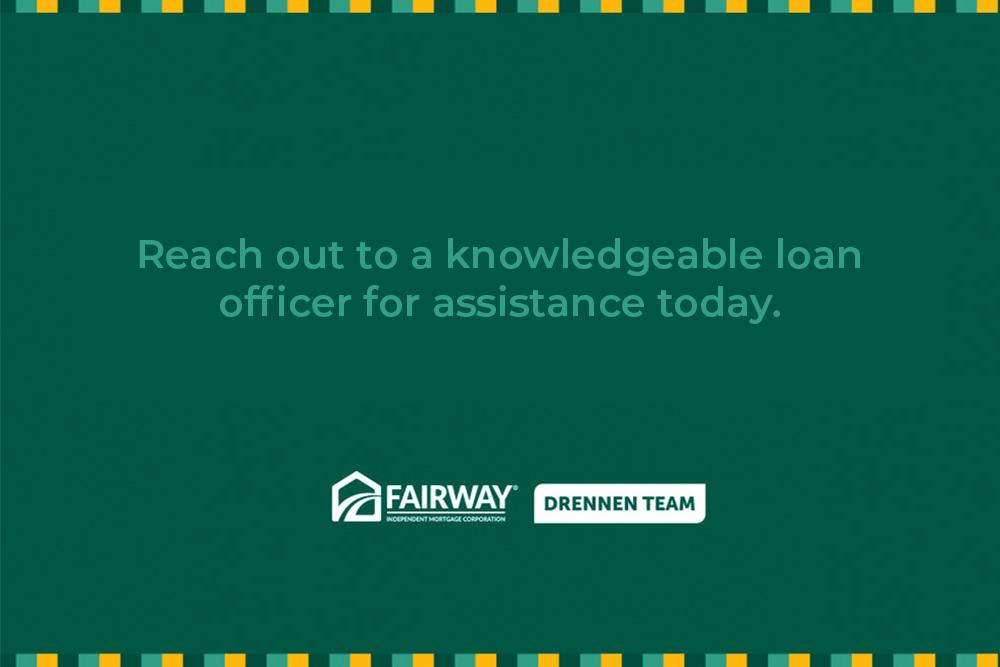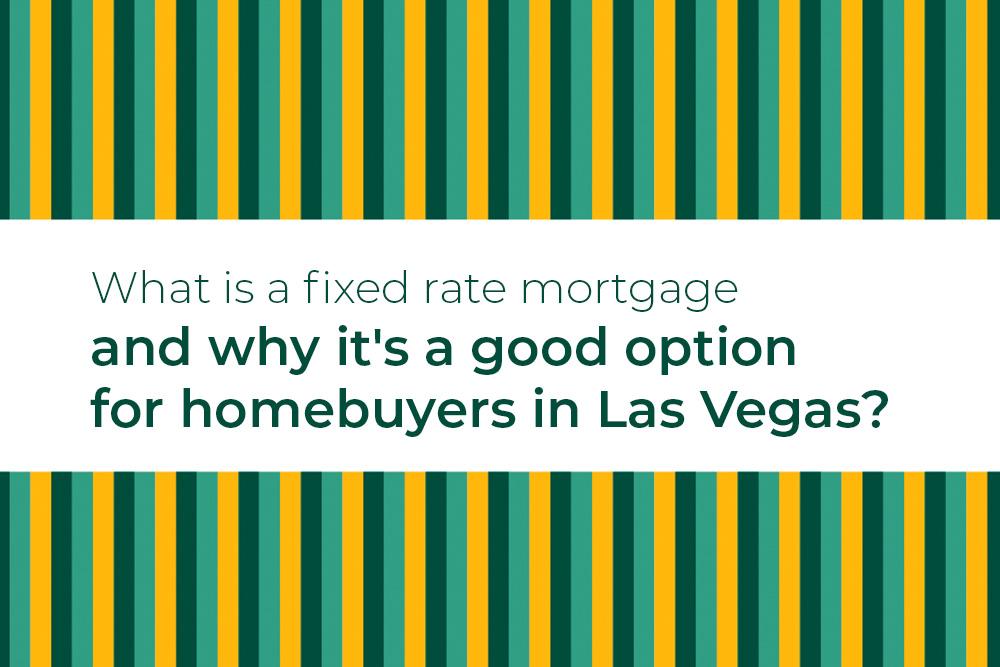
Mortgages can have either a variable-rate interest or a fixed-rate interest. There are advantages to both, although many first-time homeowners choose to have a fixed-rate interest because it is more predictable than a variable-rate loan. There’s lots to think about when you’re searching for the ideal mortgage in Las Vegas, but a loan officer can tell you about the mortgages available and explain the benefits of a fixed-rate loan.
What are the mortgages available?
You can get a fixed-rate or an adjustable-rate mortgage in Las Vegas when you buy a new home. Both options can be advantageous to homeowners, but you’ll need to determine first which suits your needs before submitting an application.
How do fixed-rate and adjustable-rate mortgages differ?
One of the key differences between the two loans is that a fixed-rate loan comes with predictable mortgage rates in Las Vegas. Regardless of whether you opt for a shorter term 15-year loan or you get a 30-year loan, you will know what your interest rates are each month. Therefore, you can plan your monthly loan payments well in advance and set a budget accordingly. A fixed-interest rate loan has a stable interest rate that does not change over the loan’s lifespan, regardless of when you started the loan and how long it lasts. If you get a fixed-rate loan, it’s generally easier to plan your budget for paying off your home expenses along with paying for other financial requirements. A key advantage of a fixed-rate loan is that mortgage rates can and do change, which can be dramatic over 15-30 years. However, if you lock in your rate initially, you are protected against the volatility of those changing rates. You may end up paying more interest initially than you would if you got an adjustable-rate mortgage (ARM), but you may also save more money in the long run.
On the other hand, an ARM may initially be appealing if it has a lower interest rate than a fixed-rate loan. However, with an ARM, you are subject to the changing price of interest. Even if you sign up for a loan with a fixed interest rate, the amount you owe each month on interest can change. The rate you pay when you sign up for the loan can either increase or decrease as time passes. Although you may end up paying less in interest over time, it’s most likely that interest rates will increase, especially in the first 3-7 years that you have the loan. If you are not in a financially stable or comfortable position when you first take out the loan, mortgage brokers in Las Vegas may very well recommend taking out a fixed-rate loan to start with so that you know what your monthly interest payments will be and you know that you can comfortably make those payments. If you start out dealing with fluctuating mortgage rates in Las Vegas, you may find that you end up having to spend more than you budgeted for on your loan each month, which can be stressful or simply unaffordable.
What are the benefits of a fixed-rate mortgage?
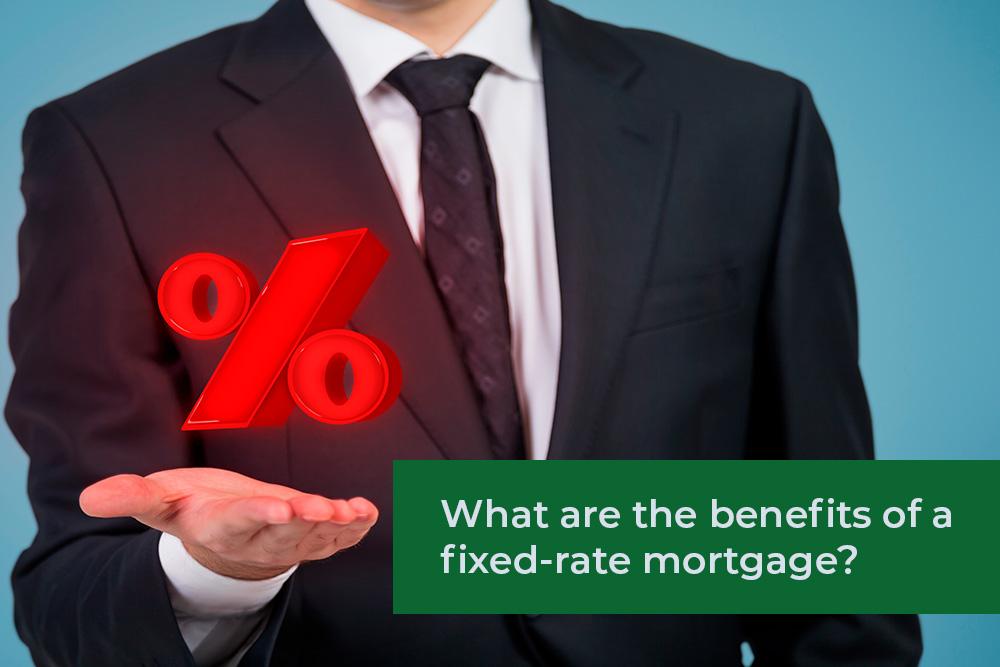
With a fixed-rate mortgage, the amount of money you spend monthly on interest does not change. That is true from the first day you have the loan until the time the loan expires. The principal you pay may vary from month to month as you pay off the loan, and if you pay more in interest initially, you may also have lower monthly interest payments as the loan goes on. To help you figure out how much you need to pay for a fixed-rate mortgage every month, mortgage brokers in Las Vegas have a simple calculator that you can use. Your payments will follow an amortization schedule, which shows how the payments that you make towards the principal and the interest change over the lifespan of the mortgage.
Initially, the payments you make may consist primarily of interest, but the interest rates may decline later on if you pay more for interest monthly than you need to. The principal payment will either stay the same or drop if you pay off your interest rates above the minimum requirement each month. A fixed-rate mortgage helps protect the buyer against certain adverse conditions, including a sudden rise in interest rates, which can raise the amount of money you owe every month. Fixed-rate mortgage rates vary by lender, which is why it is essential to shop around for a good mortgage rate before settling on one. Although there may be minor differences in cost among lenders, the price for a fixed-rate mortgage generally varies very little from one lender to the next.
What is an adjustable-rate mortgage?
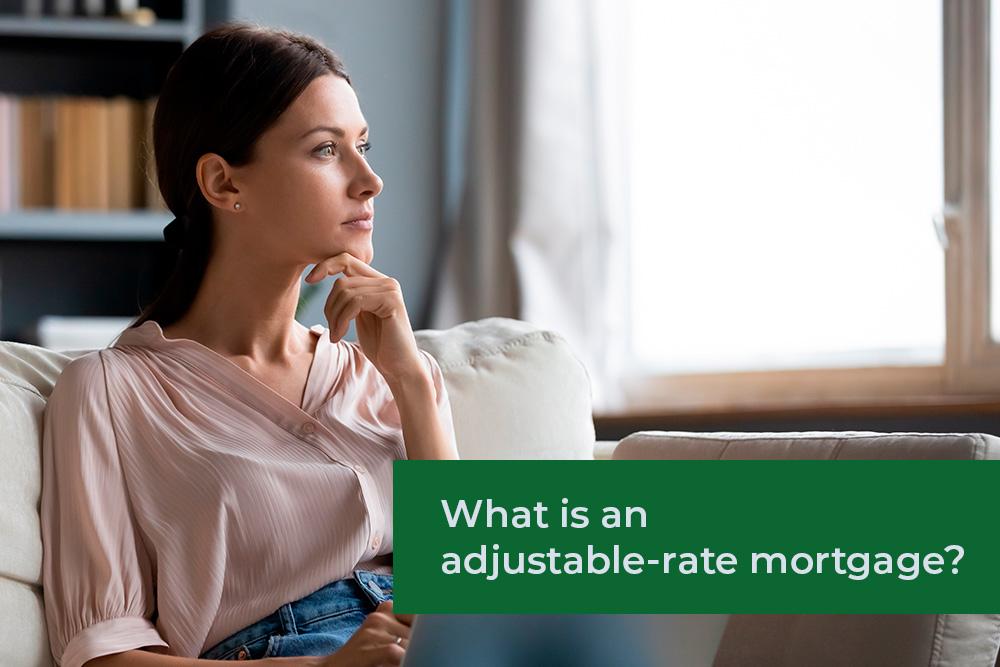
An adjustable-rate mortgage also called an ARM, has different characteristics than fixed-rate loans. ARMs have an interest rate that can change over time. For the first three to seven years, however, an ARM may have a lower initial interest rate than a fixed-rate mortgage, which can make it more appealing to people who are buying a home. A big risk with this kind of loan, however, is that it can make you qualify for a larger home loan. When the interest rates are low and work in your favor, you can make lower monthly payments without having to worry about refinancing. People who take out an ARM initially can save hundreds of dollars in the first few months, which might lead them to believe that those savings will continue.
After the initial rate period ends, there is a good chance that the interest rate will rise. If that happens, the new rate will be based on current market rates rather than the initial value. One of the most significant downsides of taking out an ARM mortgage is that the monthly payment you need to make can fluctuate significantly. If you have a large loan to start with, you may find that it’s difficult to keep up with your monthly payments. When you struggle to make your scheduled monthly payments, it also puts the lender at risk, and you might face additional financial penalties like having to pay a mortgage insurance premium every month.
Considerations When Choosing a Loan
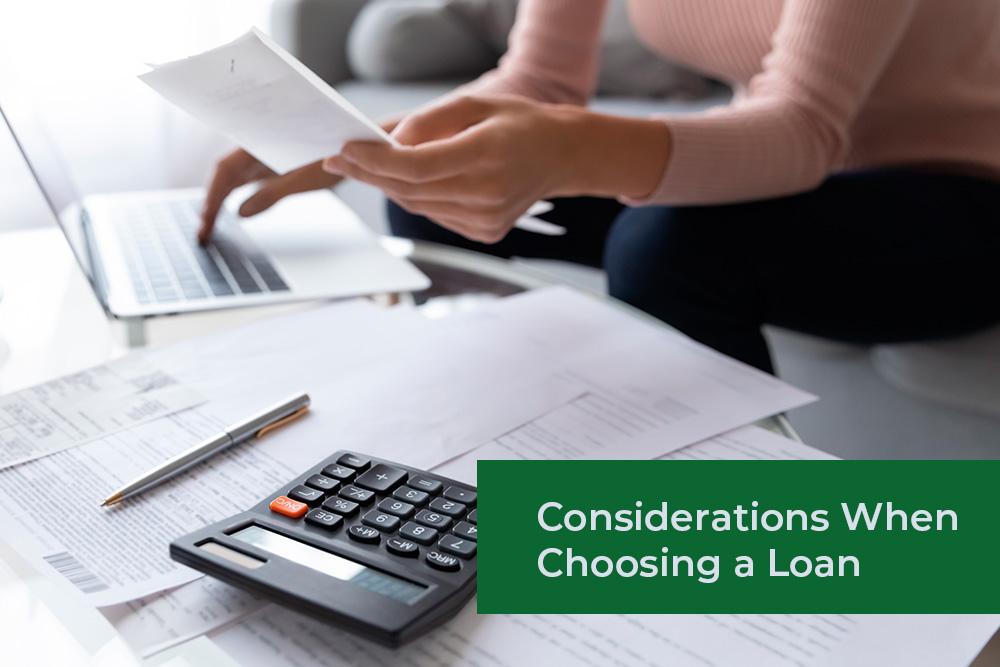
When deciding which loan is right for you, you have several options. When deciding between a fixed-rate loan or an ARM, ask yourself the following questions. One of the first questions should be how much can you afford to pay for a mortgage in Las Vegas each month, starting with the first month? Then, ask yourself if you can keep up with the initial monthly payments even if interest rates rise. The amount of time you intend to spend living on the property is another question to consider. Lastly, ask yourself if you envision interest rates rising or falling over time. If you don’t have the answer to the last question, a knowledgeable loan officer who is familiar with trends in mortgage rates in Las Vegas will be able to assist.
Deciding what kind of loan to get can be challenging, but we can help! Reach out to a knowledgeable loan officer for assistance today.
